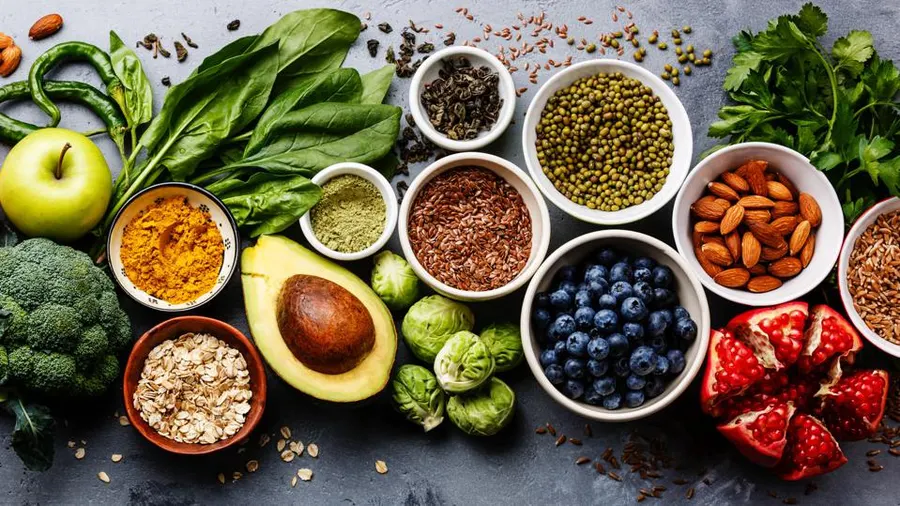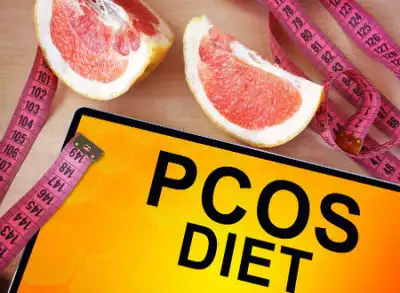What makes the weight gain diet plan so important?
The causes of weight gain are numerous. Even if you are watchful of your weight, you might wonder how this came about. Taking drugs, leading a sedentary lifestyle, and having insufficient sleep are just a few things that might cause weight gain. This post is for you if you've previously considered these things but are still unsure of how you gained excess weight.
Individuals who are underweight may have just as many health risks as those who are overweight. Malnourished bodies cannot receive the nutrition needed to develop firm skin, bones, and hair. Contact us for a better weight gain diet plan!
Dangers of underweight
Much like being overweight, being underweight can result in health issues.
Some underweight individuals do not suffer any adverse effects or symptoms as a result of their weight. The following signs of being malnourished, however, can occur in certain people:
Osteoporosis: A 2016 research study discovered that being underweight raises a woman's risk of osteoporosis, a condition in which the bones become brittle and more likely to shatter.
Teeth, hair, or skin issues- Physical symptoms, including thinning skin, loss of hair, dry skin, and poor oral health, can happen when an individual does not consume sufficient nutrients in their regular weight gain diet plan.
Having frequent illnesses, an individual may need more nutrients to battle infections if they are not getting adequate energy from their food to keep their weight in check. A person may become unwell more frequently, and ordinary diseases like the common cold may persist longer.
Being constantly exhausted - Calories are a unit of measurement for the amount of energy a specific food may provide. People may feel worn out if they need more carbohydrates to maintain a suitable weight.
Anemia: A condition marked by low blood counts that can result in tiredness, headaches, and dizziness, is more prevalent among underweight people.
Irregular menstruation cycle: Underweight Women may experience irregular menstruation, menstruation stopping, or a delayed or missed first period in adolescents. Infertility may result from irregular or non-existent menstruation.
Pre-term births: Pre-term labor, or giving birth to a child before 37 weeks, is more likely to occur in a pregnant woman who is underweight, according to a paper published in the Journal of Obstetrics & Gynecology Reliable Source.
Weak or Sluggish growth -Young individuals require nutrition for proper bone development and growth. Lack of calories and being underweight might prevent a person from developing as intended. "Failure to thrive" is what medical professionals refer to in this situation.
An underweight person has a higher chance of dying than someone with a BMI that is considered typical, according to a study published in the publication BMC Public Health Trusted Source. The researchers hypothesized that, in comparison to someone with an average BMI, being underweight may hinder a person's ability to recover after an injury or traumatic event.
Reasons for being Underweight
There are several causes of underweight individuals. Several underlying factors can occasionally be connected. Ones that contribute to being underweight include:
Family history: Some persons have quite a naturally low BMI due to inherited physical traits.
A rapid metabolism: Even while consuming high-energy foods, a person with a strong metabolism may not put on much weight.
Actively moving frequently - Athletes or people who exercise vigorously, like runners, may burn many calories, leading to low body weight.
Chronic sickness or physical ailment: Certain diseases make it challenging to gain weight since they frequently induce nausea, vomiting, and diarrhea. People may not want to eat because other factors make them less hungry. Examples include digestive diseases like Crohn's disease or ulcerative colitis, diabetes, thyroid issues, and cancer.
The disease of the mind: Depression, stress, obsessive-compulsive disorder, and disordered eating like bulimia and anorexia can all have an impact on a person's capacity to eat. Any of these ailments may affect a person's appetite and body image.
A dietitian can offer a weight-gain diet plan that enables a person to gain weight healthily and assist them in determining the root cause of their low BMI.
What does the term "underweight" mean?
A body mass index of less than 18.5kg/m2 or low body weight can be used to determine if an individual is underweight. A person's body mass index (BMI) measures their weight compared to height. Several categories are linked to various BMI ranges:
1. The term "healthy weight range" refers to a BMI of 18.5 to 24.9 kg/m2.
2. Overweight is a BMI of 25 to 29.9 kg/m2.
3. Obesity is defined as a BMI of 30kg/m2.
It is important to note that a low BMI does not necessarily indicate good health. According to their BMI, some healthy individuals may be considered underweight. Nevertheless, because the BMI does not account for bone density and muscle mass, a BMI classified as overweight/obese does not always suggest that you don't have a healthy body with weight.
BMI is only one way to categorize your weight; for further information on your optimal weight, it is advisable to see a qualified dietitian for a proper weight gain diet plan.
What are the probable harmful effects of being underweight on a person's health?
Several things might lead to underweight people. Even though they may not have any present health problems, some individuals may be underweight owing to heredity. Others, however, may be underweight or accidentally lose weight for other causes, such as:
1. Insufficient dietary intake
2. Being unable to satisfy the body's higher nutritional needs when severely or repeatedly unwell
3. Hormone-secreting gland problems, such as undetected diabetes, Addison's disease, or hyperthyroidism (overactive thyroid).
4. A digestive issue, such as celiac disease, ulcerative colitis, or Crohn's disease
5. Loss of drive to prepare or consume food
6. Swallowing and chewing challenges (dysphagia)
7. Adverse reactions to various drugs and therapies
8. Eating disorders, such as bulimia nervosa, anorexia nervosa, and avoidant or restrictive food consumption disorder (ARFID), among others
Specific underweight individuals may be at risk for malnutrition because they may not eat enough calories, protein, or other nutrients. Inadequate nutrition can cause several health problems, including an elevated risk of disease and infection, sluggish wound healing, depressed mood, poor energy, an elevated risk of fractures, weaker muscles, and decreased independence.
Weight gain diet plan, as recommended by a dietitian
There are easy strategies to raise the amount of protein and calories in the diet, which may help stop future weight loss and promote healthy weight gain:
1. Throughout the day, strive to eat smaller portions more frequently using the "little and often" philosophy.
2. Eat small, healthy snacks in between meals, such as biscuits, cheese, and snacks, vegetable sticks with a creamy or avocado-based sauce, yogurt, unsalted almonds, dips, samosas, dough balls, and plantain chips.
3. Enhance your diet with nutritious beverages. Try milky hot drinks, yogurt-based beverages like lassi, milkshakes (either made with regular full-fat or plant-based milk), malt drinks, and soups.
4. To prevent feeling too full to eat, try not to drink right before meals.
5. Increase your foods' protein and calorie content without raising the serving size to make every bite count. Add more spreads, nut butter, fruit that has been diced or mixed, cheese, cream, oils, dry milk powder, sugar, or honey.
6. Eat in a calm, well-ventilated atmosphere to pique your interest and aid with mealtime concentration.
7. When you don't like cooking, buy frozen food or prepare large quantities.
| Food Item | Serving Size | Calories | Protein (g) | Carbs (g) |
|---|---|---|---|---|
| Chicken Breast | 4 oz | 130 | 25 | 0 |
| Brown Rice | 1 cup | 215 | 5 | 45 |
| Broccoli | 1 cup | 55 | 5 | 11 |
| Almonds | 1 oz | 170 | 6 | 6 |
| Almonds | 1 oz | 170 | 6 | 6 |
Important Points
- Eat a variety of nutrient-dense foods
- Limit processed and high-sugar foods
- Stay hydrated
- Eat a variety of nutrient-dense foods
- Limit processed and high-sugar foods
- Stay hydrated
- When to visit a doctor?
It is advised to contact a doctor if you unexpectedly lost a considerable amount of weight during the previous 3 to 6 months and experienced symptoms like baggy clothing, excessive fatigue, a change in mood, and decreased physical performance. They may do a thorough check and find any problems that might be causing weight loss.
Your physician may also recommend a qualified dietitian for individualized nutritional guidance. You must consult your doctor if a medical issue is present or if you exhibit any additional symptoms, such as missed periods, muscular weakness, or discomfort.
Suppose you cannot eat because of problems chewing or swallowing. In that case, you must visit a doctor so that a dietician and a language and speech therapist can assess you further and provide advice on appropriate textured modified meals.
Speak to a trusted person if you suspect an eating disorder. It could be a good idea to talk to your doctor; they can point you toward programs and healthcare providers that can support you.
I am a professional Life Coach specializing in personal growth, relationship, and career coaching for clients nationwide.
How to gain weight at home?
The World Health Organization estimates that 462 million individuals worldwide are underweight. While being fat or overweight might be problematic, being dangerously underweight can also hurt your health.
Coach for Weight gain diet plan
Your weight gain coach would help you to adopt a weight gain diet plan, which includes the nutrition knowledge explained below:
Hone the Physical Strength
Playing a sport or lifting weights in the gym is crucial for building up physical prowess and preventing extra calories from turning into fat.
To build muscle, visit the gym four to five times a week at the very least. Spend most of your time performing strength training rather than plenty of cardio.
Stay Hydrated
Drinking water has become linked with weight loss because it helps people consume less food. However, water makes you feel full, so avoid drinking it before or with meals.
Although it doesn't help you gain weight, drinking water keeps you hydrated and removes toxins from your body. Include protein shakes to stay hydrated and maintain a healthy weight.
Food consumptions
1. Theoretically, consuming 500 extra calories daily will gain a pound of weight within a week. Thus, have more filling meals and snacks throughout the day that are high in calories and nutrients. You can eat more significant portions or spread out your meals throughout the day. Eat fewer calories that are empty and don't supply any sustenance.
2. the recommended daily protein consumption ranges from 1.5 to 2.2 grams per kilo of body weight for someone underweight. According to research, most extra calories are stored as muscle when you consume a high-protein diet.
3. You can occasionally swap potatoes for sweet potatoes because sweet potatoes have a lower glycemic index and are less likely to cause blood sugar spikes when ingested regularly. Although sweet potatoes are rich in resistant starch and fiber, which help with weight reduction, the proper cooking and preparation methods can cause you to gain a few pounds. For a well-balanced carb-protein snack, cook sweet potato mash, adding butter or cheese and some meat.
4. Eating nuts, dry fruits, and beans is an excellent method for gradually gaining weight. According to one study, nut butter, nuts, and dried fruits (such as dates, apricots, and prunes) are excellent sources of protein, Vita-E, and monounsaturated fats and can be added to snacks and meals to increase nutritional and calorie intake.
5. Due to its Ayurvedic origins and lack of side effects, Ashwagandha performs better than various weight gain pills. Also, studies show that it dramatically boosts strength and muscular mass. Your body will keep its muscular mass long after stopping or cutting back on using this powder. Join our weight gain diet plan!
6. Ginger has a reputation for increasing appetite. Ginger stimulates the digestive system before a meal. This encourages improved digestion and nutrition absorption while enabling you to consume more meals.
7. For years, people have utilized milk to put on weight and build muscle. Even though it is high in calories, it also contains a lot of protein, healthy fats, vitamins, calcium, and minerals. It includes a mixture of casein and whey proteins, aiding muscle growth. Research has shown that combining milk consumption with weightlifting activities increases muscle mass.






